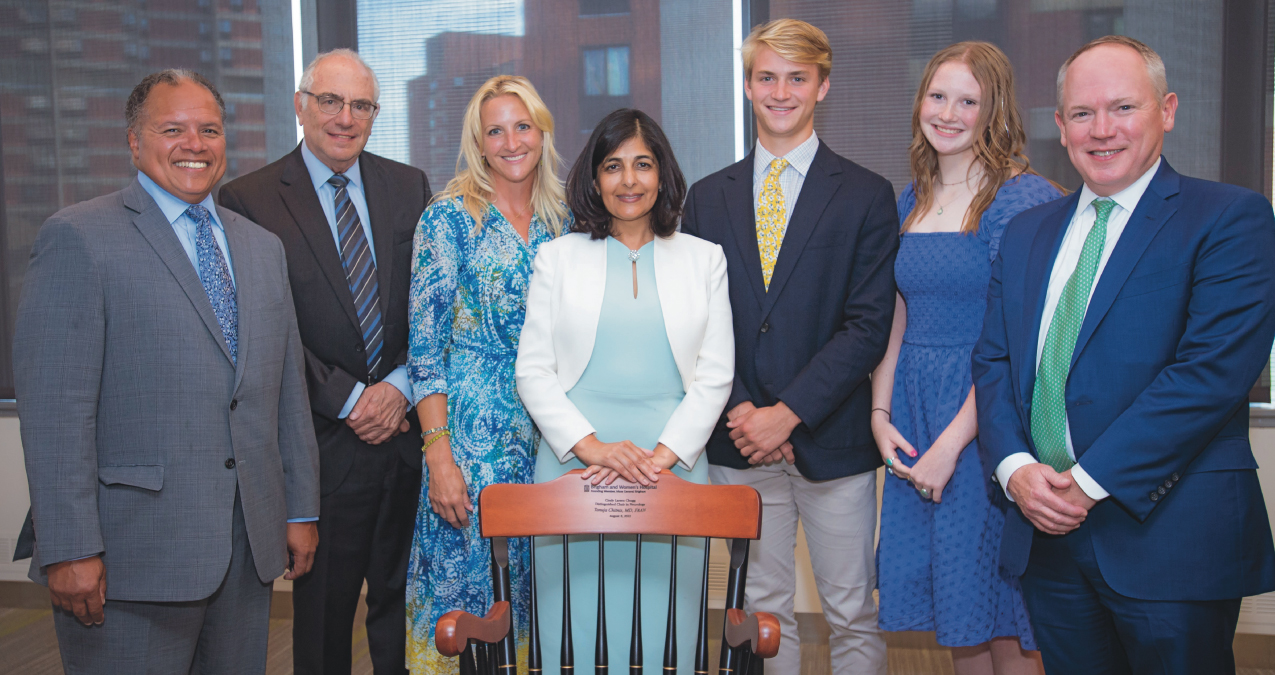
Marriotts create distinguished chair dedicated to progressive MS research
“My mom would love that a woman is the first person to hold her chair. She remained hopeful a cure would come.” –CARRIE MARRIOTT
Carrie Marriott’s mother, Cindy Larsen Chugg, lived with progressive multiple sclerosis (MS) for nearly 40 years. Diagnosed with the neurologic disease at age 27, Cindy’s difficulties with balance, walking, and muscle control continually worsened. “My mom began using a wheelchair in her early 30s and was bedridden for the last 17 years of her life,” Carrie explains. “Despite all this, her courage, determination, and optimism were unmatched. She taught us to find joy.”
Inspired by her mother, Carrie and her family became fierce advocates for research at the Brigham’s Ann Romney Center for Neurologic Diseases, where she serves on the advisory board.
After her mother died last year, Carrie and her husband, David, sought to create a lasting tribute to her mother’s legacy. The Marriotts’ $2.3 million gift, together with additional philanthropic support from friends, family, and the J. Willard and Alice S. Marriott Foundation, established the Cindy Larsen Chugg Distinguished Chair in Neurology at the Brigham. Their goals: to honor Cindy, invest in physician-scientists with expertise in progressive MS research, and help develop treatments for the condition. Unlike the most common form of the disease, relapsing-remitting MS, there are no effective therapies for progressive MS.
At an August ceremony, the Marriott family, Cindy’s husband, Kevin, and daughter, Kellie Romer, and her family joined Brigham faculty in recognition of inaugural incumbent Tanuja Chitnis, MD, FAAN, a senior neurologist and director of the CLIMB study, the world’s largest, longest-running longitudinal study of MS.
“Dr. Chitnis is an international thought leader in MS,” says Department of Neurology chair Tracy Batchelor, MD, MPH. “We’re thrilled she is the first to hold this chair position, one of the highest honors the Brigham can provide to faculty.”
Chitnis says, “I’m so thankful to the Marriotts and their friends and family for propelling our research priorities forward at a time when we’re making major gains in understanding progressive MS and finding treatments that offer patients relief.”
“My mom would love that a woman is the first person to hold her chair,” Marriott says. “She remained hopeful a cure would come. Now, we’re talking about treatments that are in clinical trials—we’re getting closer.”